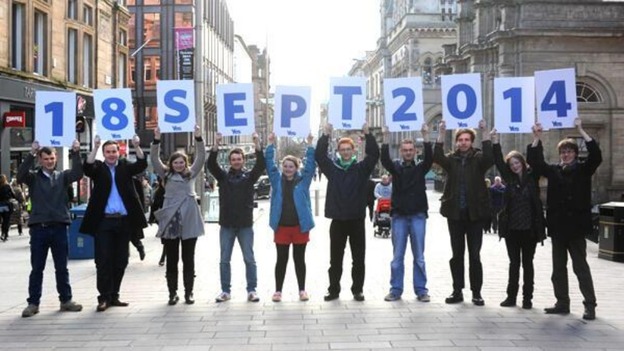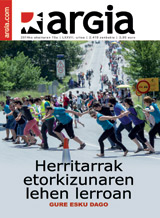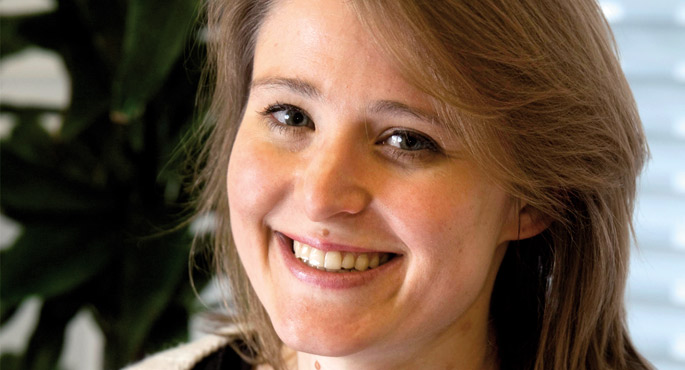
I'm about 50 kilometers further south of Rouen, in Normandy, and I have two in my hand to give you a walkiri -- walkiri, to say the least -- of about 120 kilos, in exchange for the essence. Excuse me – I was wrong to ask, of course in French – as you know from Rouen to Pas de Calais, how many kilometres are there? The huge blonde didn't even look at me. I repeated the question. Now, disgracefully, he answers me. It has no idea, as if my question had been of perfect impertinence. At first I was crazy, then I realized: of course, you believed that I am a Southern who comes to take away the work from the real French, you did not think I am a tourist.
I was very happy with this idea. In the Rouen area, the Mathilde Bridge, which has all the traffic to the north, is closed by works (April 2014), have enabled a temporary crossing to Calais, which is not easy to take, we have lost. I stopped at another service station. Another woman, brunette than ever. My same level of French. I told him I was lost, what I had to do to get to Calais, etc. He explained to me with great kindness how I should do it.
In England, beyond Newcastle, there is a wide paramo, a field really, in Basque or in Basque. This spring afternoon you see only a few villages and some sunny villages. It's very hard to live there. Then comes a line of mountains. When the road takes over it, we see a Scottish flag and the other symbols announcing our entry into Scotland. No excesses, but obviously.
In other words, the land of Scotland is naturally protected and separated from England, in three quarters of its border, or more. The Scottish nation has no territorial barriers.
Scotland is a sublime country. There, roughly, in a territory almost four times larger than the Basque Country, it inhabits almost the double population. Glasgow is the main city, but Edinburgh is the capital.
It is less than five months before the Scots vote alone on the independence of their country. The environment is expected to warm up for as long as it is missing, but in April 2014, the one that runs through the towns and cities of the country, it is hardly possible to perceive that it is in a country on the doorstep of making a historic decision. Ireland is not the Basque Country, Catalonia is not Scotland, Crimea is not Kosovo… Until it gets bored, the unionists of all the races have used this perniciousness to try to eliminate the similarities that occur (already exist). The main thing: the recognition of the right to decide their own status. That's the bad thing. That's what they want to hide from us every time X is not Y. Catalonia is not Scotland, it is not that, especially because England is not Spain, it is that.
There is no sense of passion in these places. Horacio (invented name), a waiter in an Italian from Stirling, is an American of American nationality, but in addition to English, is also Spanish because he is the son of Colombians, although he was born in Chicago. He has been living in Scotland for years. What can the concept of nationality be for Horacio? Gina, the patron of that Italian (also with invented name), is the daughter of the Italians and Scots. In his words, he is half a Scottish and half an Italian; that is, he clarifies, “surely not one or the other anymore”.
What can Horacio's identity be, the national identity? I wonder. Is he American because he was born there? Colombian, because their parents were? Is Spanish because it is your mother tongue? Scottish, because it's a town that has given it the chance to make a living? Who knows? But it seems that identity, nationality, is a luxury that cannot be delivered to people like Horace. People like Horacio are workers of global exploitation, and that's their true identity. This identity is characterised by a low requirement in terms of working conditions, complete mobility and high linguistic competence. They say that in the Middle Ages the servant had to be faithful to the king, not to the country, not to the nation. That the concept of citizen was the product of the feats of nations, along with the emergence of modernity. Despite appearances and differences, we seem to be returning to the Middle Ages at a gallop: soon the bank that has left us the mortgage loan will be our only homeland (if it is no longer, we could put it on t-shirts: “My bank is my only animal.”)
The walkiri along with Rouen and Horacio are locked in the same zepo (I too, of course), but the zepo-gardener has been skilful enough to oppose one another in the name of something that some call nationalism. In the name of the guise of far-right nationalism to which others call fascist, populist and xenophobic. I would need an analytical capacity that I do not have to explain how capital can behave with these two strands, if it does not contradict it and, if so, how it overcomes them. Meanwhile, Lea Ben goes up to France. Look at the UKIP, the first in surveys in Britain, look for a long time at the ultra-right in the Netherlands and so on.
By chance, here is one of the keys to the Scottish case, apparently without a tension of breakdown for independence. The writer Irvine Welsh (Edinburgh, 1958) who has best been able to turn the motto of the unionist campaign “Better together”. Trainspotting, Acid House, Porno…) was: “Better together? Yes, certainly, but better independent and free together.” Yes, but better independent and free together). Welsh and other writers (James Kelman, William McIlvanney, Alasdair Gray…) are in favor of the "yes", although most of them are not considered nationalist and although they take distance from the SNP: “Being in favour of independence – says Serbian – is only part of the 30-year-old opposition to neoliberalism.”
In other words, an independence that is not called nationalist. Yes? Is that possible? In this sense, is it not basically a problem of nomenclature? However, this has reminded me of many things. For example, Egiguren’s statements in recent times. But also that the Palestinian Tariq Ali was recently at the University of Edinburgh giving a speech in which he said that he had differences with the SNP, but that he nevertheless appreciated Scotland’s independence. The reader of Argia will recall that, perhaps, for the last time he was in Euskal Herria, the time is not long, when Gorka Bereziartua of this magazine asked about the independence of Euskal Herria, answered: Independence? Then, if the World Bank, the IMF and others continue to govern, why independence? Why doesn't Ali see the same thing here? As he is a great advocate of the Palestinians, should we understand the difference of view in the key to international policy? If not, does the SNP and, for example, the PNV really look so different?
Everyone here says that everyone wants to be very careful and that the issue is not so much or more a matter of feelings, but of pragmatism. Writers and artists are the most courageous players in favour of the Bai vote. But Tom (invented name), a mature man who has passed the 1950s, a taxi driver in Inverness, is in favour of voting no, because he believes that the problems that independence would entail are more and more than the ones he could solve. There is a fairly widespread feeling, at least to us, that of those who think like Tom, that of those who say that they are OK, that Scotland is OK and that they do not want independence. It gives them mistrust, even fear. In Inverness we have also found another extreme example. A party is being held at Gellions Pub on Saturday afternoon. On the door there is a Scottish flag with a motto that says that on 18 September they will vote in favour of independence in Scotland. Inside there is a crowd that drinks pints and sings, like a nationalist hymn, haunted by musicians acting from the corner (lots of sound, drums, guitar, bass and voices). Then came the Gaiters. There, the Basque feels at home. Continuing around Inverness, we arrived at St. Andrews Cathedral, not far from the pubs. There, the choir of the cathedral acts to capella, with a kind of orange fountain like blankets. On the side nave of the cathedral you see the English flag hanging, one of the fourths of the red cross that the white needs has the Union Jack flag.
Is it possible that a country will gain independence with the approval of writers and juerguists, but against the opinion of priests and taxi drivers? From this latitude, it seems very problematic. However, that is not an obstacle in Scotland, at least as far as the priests are concerned. In fact, four out of ten Scots say they have no relation to any church. And of the remaining six, four are from the Scottish Church (Presbyterian Christians) and two other Catholics (the proportions are not exact, the proportions of other religions, although very few, should be included in them). In Scotland, the polarisation of an Ireland between Catholics and Protestants, with its clear identity options, does not even appear to be repeated; that is only important in football, with the well-known enemy between Celtics and Rangers. The banalization of religion? Sacralization of football? Both at once?
Football would need a whole chapter. They live with real passion in Scotland, as in every corner of the British island. At a more heroic time there was something in the Graeme Souness in Liverpool, or it was like a squirrel in any of the parks in Edinburgh, that is to say, anywhere in the camp was presented by chance at the time of Gordon Strachan -- big than small. Times are times, there, the Scots have the choice, both in football and in rugby and in everything else, because England has never denied them nationality.
No problems of territoriality, no problems of national recognition.
In Inverness, we've also seen a couple of girls wearing a t-shirt that exalts the figure of hero William Wallace. Tony Blair and Gordon Brown, former British Prime Minister, were Scottish. They haven't bitten her, and in the hope that we can get information, they've given us the address of Wallace's followers' website.
You might expect to see more signs of a campaign around you, but we haven't seen a single poster, let alone a mural or a painting in Inverness, either in Stirling, or in Edinburgh, or in Oban, or anywhere.
Polls say that "no" is the main "no", but that in recent months the gap is being devoured. Everyone says that Glasgow is the key, rather than Edinburgh itself, because although Edinburgh is quite large, almost half of the Scots (about two million people) are concentrated near Glasgow. According to the polls, during 2014 voters of the "no" have stood at around 55-60%, and those of the "yes" have stood at around 30-35%. Last Saturday, April 26, the Scotsman newspaper released the latest survey carried out by the company ICM on the state of alarm. In this sense, he recalled that now the 'no' would be 43%, the 'yes' would be 40% and the 'no' would be 17%. The 'yes' supporters look to Norway in search of the reference, Sweden, Finland and Norway without a single, united Nordic state, but remember that they live peacefully and in a nice brotherhood.
What about languages? Is the subject of language important in the special situation in Scotland? Scottish Gaelic is co-official, although only 1% of the population (about 60,000 people) knows this, most in the West, in the areas of Skye Island and Hebridas (we will leave the nuclei of speakers that exist in Canada). Most Scots regard it as their national language, since it was once extended throughout almost all of Scotland, although it did not dominate the language, and its influence is, so to speak, sentimental and romantic, but not so practical. The topic of language, however, does not cause any belly pain. A bargain for Castilian lovers who want an independent Basque Country. Next to the Scottish Gaelic is Scots, that is, the Scots. Over one million people (between 1,200 and 1,500,000, or 20 to 30 per cent of the population) speak Scottish. It has no official declaration, it is dialectalized and it has no standard. Thus, is there no linguistic conflict, no remorse? What's that like? The point is that there is a debate on the linguistic status of the Scottish, that is, whether it really is a language or whether it is a dialect of English. For example, 65% of the population across Scotland believes that it is not a true language, but a dialect of English.
No problems of territoriality, no problems of knowledge of nationality, no problems of religion, no problems of linguistic struggle. No, Scotland is not the Basque Country.
On 18 September, Scotland will decide on its independence in the Congress of Deputies.
Nowhere is there a people like another, as there are not two equal people. The rights they have or do not have equals. Spain does not want Euskal Herria, or Catalonia, to be equal to Scotland, in the only way and in the only way in which they can be equal.
Time passes quickly, even more so after two years so slow and weird by the pandemic. The Scottish Prime Minister, Nicola Sturgeon, announced at the end of June his intention to conduct a further consultation on the country’s independence in October 2023, which leads us to... [+]
Independentziari buruzko bigarren erreferenduma 2023ko urriaren 19an egitea proposatu zuen Nicola Sturgeon Eskoziako lehen ministroak joan den astean. Ezezkoa erantzun dio Boris Johnson Erresuma Batuko lehen ministroak
Eskoziako Parlamentuan egindako hitz hartzean eman du horren berri Nicola Sturgeon Eskoziako Lehen ministroak. Aurkezpenean, kritikatu egin du Erresuma Batuko Gobernuak orain arte ukandako "blokeo jarrera".
Abogatu bezala egiten du lan Txema Monterok. "Nere defendituren batek Frankismoan inork baino denbora gehiago darama... [+]






















